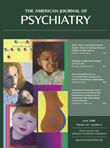Dr. and Ms. Hamilton Reply
To the Editor: We thank Dr. Ganzini for her comments and agree with her observation that psychiatrists’ ethical views affect their clinical understanding and decisions concerning patients who request that a doctor give them a prescription for a lethal overdose. In fact, that was the point of our recent article (reference 2 in her letter): the legalization of assisted suicide has created competing paradigms—in some ways, mutually exclusive paradigms—of responding to suicide requests in Oregon.
Dr. Ganzini also writes that she was the psychiatrist who determined that Ms. Cheney, an 85-year-old patient with growing dementia, did not meet the competency requirements of the Oregon assisted-suicide law, apparently due to dementia. Yet she also attempted to justify a second opinion, which also indicated that Ms. Cheney was suffering from dementia but cleared the ailing woman for a lethal overdose anyway, an overdose that she eventually received. Why Dr. Ganzini comes down in her letter on the side of someone else’s opinion favoring assisted suicide remains unclear. Neither can her dilemmas be impartially considered with only the information she herself is willing to present as a basis for discussion.
Dr. Ganzini’s comments themselves illustrate a serious problem with the Oregon assisted-suicide law. Virtually everything known about such cases comes from those who have participated in the process of giving patients overdoses and need to justify their behavior (1 , 2) . That is why, once again, we call for open and impartial review of anonymous assisted-suicide cases in Oregon, something that has not happened previously.
We are grateful to the patient described in our recent clinical case conference for giving us permission to review his extensive medical records and to publish our findings in the medical literature.
1. Hamilton NG: Oregon’s culture of silence, in The Case Against Assisted Suicide for the Right to End-of-Life Care. Edited by Foley K, Hendin H. Baltimore, Johns Hopkins University Press, 2002Google Scholar
2. Foley K, Hendin H: The Oregon Report: don’t ask, don’t tell. Hastings Center Rep 1999; 29:37–42Google Scholar



